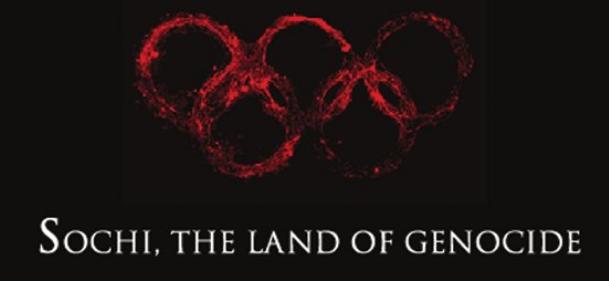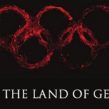
Moscow Uses Commission on “Historical Falsification” to Deny Circassian Rights
Publication: Eurasia Daily Monitor Volume: 7 Issue: 14
By:

“The main goal of the ‘Special Presidential Commission against falsifications of the history of the Russian Federation causing harm to Russian national interests’ is to identify and fight against conscious, imprudent falsifications, aimed on the political results,” declared Sergei Markov, the deputy head of the State Duma’s committee on public associations and religious organizations and a member of the special presidential commission (Vechernyaya Moskva, December 29, 2009).
In his statement, Markov gave two examples of what he called “purely politically-aimed” falsifications that damage Russia’s national interests. The first, he said, is the Golodomor (the Ukrainian accusation that the Soviet Union committed genocide against the Ukrainian people in 1932-1933, when thousands of Ukrainians died of hunger). According to Ukrainian claims, the famine did not have a natural cause, but was organized by the Russian state in order to reduce the number of Ukrainians.
A second example of such historical falsification, said Markov, is related to the Sochi 2014 Olympic Games and aimed at falsifying the history of the Russian-Caucasian war from 1817-1864. “Yes, the war was bloody,” said Markov, adding, “However, it was only thanks to Russia that the Adygs-Circassians received their own state. Those who left for the Middle Eastern countries are in an incomparably worse situation today than those who remain in the Caucasus.” He underscored that those “extremists” who use the slogan, “No Olympic games on the land of genocide,” are not worried about the “historical truth,” but rather aretrying to call the whole world to boycott the Sochi games (Vechernyaya Moskva, December 29, 2009).
The two main targets of the special commission as indicated by Sergei Markov (the Ukrainians and the Circassians) are becoming more of a headache for the Kremlin not because those two issues are falsifications of history, but because there is in fact unbeatable historical evidence behind the genocide claims.
Focusing on the Circassian issue, the Circassian Congress NGO claims that the genocide committed by Russia against the Circassians can be easily proven based solely on the official documents from the Russian Imperial archives. According to the Circassian Congress, approximately 1,500,000 people were massacred and partly deported from the Caucasus, and the Circassians lost 99 percent of their population during the war and deportation (www.circassiangenocide.org).
Every problem that befalls a separated nation applies to the Circassian Diaspora living in exile. Although Circassians traditionally played a significant role in the government, military and diplomatic fields of the host countries, they have suffered from losing their identity, traditions, language, culture and ties with their homeland. Repatriation is one of the possibilities for restoring their homeland in the Caucasus, but the process implies appealing to the Russian Federation for permanent resident status and then, if such status is granted, living in the Caucasus for seven years and then applying for citizenship. And while the process itself is already complicated, those repatriated often face additional impracticable requirements.
However, even those who have fulfilled all the requirements still cannot be sure that their status in their homeland is secure. The case of one Circassian repatriated to Nalchik (Kabardino-Balkaria), Turkish citizen Bolat Haci Bairam, is one of the clear examples of Circassians lacking the right to freely return to their country. Haci Bairam had been deported from Nalchik to Istanbul in his pajamas without money and documents just a few days prior to receiving Russian citizenship, for “violating the registration regime” – that is, for spending one night in his friend’s house. Although Haci Bairam appealed to the European Court for Human Rights and has won the case against the Russian Federal Security Service (FSB), he has not been allowed to set foot on Circassian land ever since. The FSB paid Haci Bairam a fee of 8,000 Euros, but when he arrived back to Nalchik, he was kept for 24 hours and then was deported back to Turkey without any explanation (Radio Free Europe, October 16, 2003).
What is exceptional about Haci Bairam’s case is not that he was deported –deportations of repatriated Circassians happen on a monthly basis– but the fact that he made it public and stood up for his rights, while the traditional way is to find a police or FSB official who, for a certain fee, will help you to regain your permanent resident status until the next deportation.
Regarding repatriation, two contradictory pieces of news came from Circassia recently. The government of Adygea (the western part of Circassia) approved a collective application for repatriation of Circassians from Ankara, Turkey, which means that the number of repatriated Circassians, which had recently been increased from 50 to 1,500 per year, can increase even more (www.natpress.net, January 11).
At the same time, the government of Kabardino-Balkaria (KBR) has not only denied the same collective appeal to receive and resettle Circassians from Turkey, but even appealed to Russian Prime Minister Vladimir Putin, demanding that he exclude KBR from the “Sootechestvennik” federal program aimed at bringing ethnic Russians from all over the world back to Russia (www.elot.ru, January 6).
The Circassian Diaspora in Jordan had made a special effort to convince the Russian government to include Circassians in the program. However, the news from KBR suggests that their success was, at best, temporary.
Sergei Markov’s attempt to present the situation as the Circassians enjoying “their own state” in the Caucasus is, in fact, a major and deliberate effort to falsify history. In reality, while approximately five million Circassians live in exile in more than 50 countries, today only less than one million Circassians remain in their homeland. The majority of them live in three republics in the North Caucasus separated by artificial boundaries and officially identified as Kabardins, Cherkess, Adygs, Shapsugs –that is, not by their ethnic names but by their geographical locations. By cutting Circassia’s territory into separate pieces and giving them different names, Russia effectively achieves the aim of eradicating the national identity of Circassians, as well as visually erasing Circassia from the geopolitical map of the region.
On the other hand, the Circassians recently came up with an initiative which, if successful, can return them their single ethnic name and geopolitical position (Window to Eurasia, January 8). The Circassians are calling on their compatriots to identify their ethnicity as a Circassian in the upcoming Russian census, not as Adyg, Kabardin or Cherkess, as required from Soviet times until recently. For propaganda purposes, the Circassians have developed a special website, www.perepis2010.org, where they post excerpts from the Russian constitution regarding their rights of ethnic identification, news about the census and propaganda materials that they plan to circulate in a printed form among non-internet users.
The attempt can potentially lead to the reincarnation of Circassia on the map of the Caucasus if the same ethnic group officially declares its single identity. The Russian census of 2010 may become the starting point for the Circassians to reach their frequently announced demand –the reunification of three republics into one Circassian Republic. This, in the best-case scenario, could become the largest region of the North Caucasus, legalizing the territory of an already existing large mono-ethnic group and moving the poles of power from the eastern to the western North Caucasus and the Black Sea coast.




